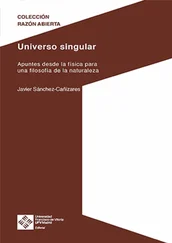“Yeah,” the lawyer said. “What kind of meeting?”
“A staff meeting.”
“At the mental health clinic?”
“Yes. There’s a staff meeting every Sunday. We present cases. If everything’s okay then I’m going to go back in. You sure everything’s okay?”
“Yeah, everything’s fine. I’m just stuck in traffic.”
And still the lawyer drove to the clinic to look for her car. But even when he saw it, he felt that it was possible that his wife had deceived him and that she had parked there and then taken a taxi. He tightened his grip on the steering wheel and exhaled. He was sweating. He tried to loosen up, stretch his muscles. He was not thinking logically anymore, he seemed to be losing his mind.
There’s no reason for this, he told himself, there’s no reason to act like this. Your life is fine. Your life is in order. You are heading into an office that is humming with work; you will always have clients. Your caseload and your income have gone up each year. Clients don’t just melt away, nothing has changed.
“He’s dead,” Samah announced when the lawyer walked into the office.
“Who?”
“Your guy.”
“What? That’s not possible,” he said, putting down the little cardboard tray and the three cups of coffee. The phones rang.
“Lawyer’s office, please hold,” Samah said, laying the phone down on the counter. She pulled a piece of paper out of the fax, handed it to the lawyer, and got back on the phone. “Sorry for the wait, how may I help you? Hello, Abu Ramzi, how are you?” Samah looked at the lawyer and he shook his head, making clear that he could not take the call. “No, I’m sorry, he’s not in the office right now. He’s in court. Yes, of course, I’ll give him the message. ’Bye.”
The lawyer sat down on his office couch and looked at the fax from the population registry. Amir Lahab, born in Tira, 1979. The lawyer took out the note Samah had given him with the ID number she had received from the outpatient clinic in east Jerusalem and made sure that the numbers matched. According to the population registry, this Amir Lahab had died on Thursday, a little over a week ago. What kind of coincidence was that? Now, while he was searching for him, the guy just happens to die?
Impossible, the lawyer thought, something is wrong. There’s no way he’s dead. Just yesterday he had spoken with the man’s mother, who did not seem to suffer from mental illness, and she had said she had spoken to him over the course of the past week. The lawyer leaned back on the couch and ran his hands back and forth through his hair.
“What’s wrong?” Samah asked, coming into the room with the lawyer’s cup of coffee.
“Nothing,” the lawyer said. “Nothing.”
“Did you know the deceased?”
“What?” It took him a moment to understand her question. “Oh, no, no. Listen,” he said, sitting up straight and pulling two books out of his briefcase, One Hundred Years of Solitude and the one featuring the work of Egon Schiele. He flipped through the first pages of the novel and showed Samah the signature, Yonatan . “Scan this page, please,” the lawyer said, “and this one,” he said, showing her the signature on the art book, “and send them to the graphologist. Tell him it’s very urgent. And that there’s no need for an official report.”
Samah took the two books. “What should I ask him?”
“What? Oh, ask him to compare the two signatures. Circle the name Yonatan on both of the documents.”
Once she’d left the room the lawyer looked around for the telephone number that he’d gotten from Meissar, the mother from Jaljulia. What would he say to her? Did you know that the son you spoke with last week is dead? The lawyer wanted to check the ID number, ask if there was anyone else from Jaljulia with the same name, but he knew those kinds of questions would make her suspicious and would not likely be answered.
“Hello?”
He heard her voice and hung up the phone.
GARBAGE CANS
On Thursday, after the shiva, Ruchaleh packed a big suitcase full of clothes and moved into a hotel room until she could find herself an apartment. Selling the house was a chore she left for me to take care of. “Leave whatever you leave, take whatever you take,” she said when I dropped her off in front of the hotel.
She had probably been waiting for this moment just as I had, played the day-after scenario in her head thousands of times. She knew exactly what had to be done, knew which suitcase to take, which clothes to pack. She had not shown any sign of hesitation when she walked out of the bedroom with her suitcase and took five books off the shelf in the living room — books she may have chosen years ago — and then walked into her study and back out again with a bag slung over her shoulder.
I think I may have thought about this moment more than Ruchaleh, and I was sure that when the time came, after months of nightly planning, I would get things done on autopilot, briskly moving from chore to chore. But on the way back from the hotel I felt myself start to lose my train of thought and everything that had seemed so clear started to blur.
When I got home I called the real estate agency that Ruchaleh had decided to work with. Upon hearing that there was a private house in Beit Hakerem going on the market, they insisted on sending someone that same day. I had to be very firm with the real estate agent and tell him that the earliest I could see him was Sunday, though I reassured him that I would not speak with other agencies in the meantime.
Ruchaleh had said I could stay at the house as long as there was no buyer but I knew I would never be able to sleep there alone, not even for one night, without her and without Yonatan. Sterilization —that was my code word for the initial first step. No trace, I said to myself as I started emptying the attic drawers and dumping the contents into garbage bags.
I tried not to look at the contents of the desk drawers, which I knew so well, but rather to pull each one out, dump everything into a bag, and move on without pause. There was no time for contemplation. Diaries, pictures, report cards, drawings from kindergarten, letters. I still wasn’t sure if these things should be shredded or burned.
Having finished the desk I moved on to the closet. I pulled the two gym bags my mother had bought me off the top shelf and stuffed my old clothes inside. After five years of neglect the clothes looked pathetic. They’re not mine, I tried convincing myself, and I shivered. They’re not mine. I brought the blue sweater to my face and sniffed it; that is not my scent, I said to myself, and I used the sweater to wipe away the tears, scratching them off my face, and then I shoved it into the bag.
The plan was to lay the old clothes outside next to the garbage cans, as all of the neighbors did, donations to the Arab garbagemen. These bags, though, I thought, might look suspicious to the neighbors. They usually left their belongings in see-through bags and not in old canvas gym bags that could look suspicious. I unzipped the bags, dumped their contents into the garbage, and then folded the bags and tossed them in, too.
I packed my new wardrobe in a suitcase that I had bought earlier in the week and, since I had promised Ruchaleh that I would leave the attic empty, I took all the things I didn’t want, threw them into garbage bags, and put them out on the curb. The eggshell mattress, the wheelchair, the ventilator, and all the rest of the medical supplies were to be picked up the following day by the Yad Sarah organization. They were delighted to hear that I was interested in donating all of the furniture in the room, too.
Noa was in class when I arrived at her house but she had left me a key, just as she’d promised, right under the mat. Despite Noa’s love of music, all she had was a little compact stereo with poor sound so I brought her Yonatan’s stereo and his electric guitar, presents for allowing me to stay with her until I found a place of my own.
Читать дальше












